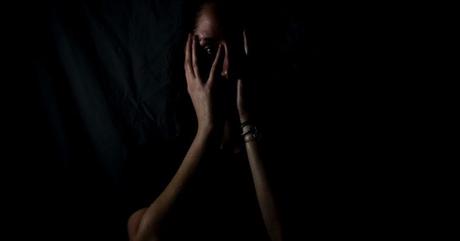
Depression and chronic illness are a fact of life for many people. In this, the people suffer for a longer time, and there is no proper cure for this other than self-healing; you can go for yoga, laughter therapy or meditations to cure the same.
Chronic illness includes kidney diseases, diabetes, heart diseases, HIV/AIDS, etc. Many people suffer from these diseases and go depressed; as a matter of fact, depression is the most common complication of chronic diseases; it is proven that one-third of people with medical issues suffer from depression.
It is easy to understand the relationship between chronic illness and depression. Serious diseases can affect your life. As it affects your independent mobility as your lifestyle changes due to the illness.
How does depression affect chronic illness?
Many severe illnesses trigger depression. The risk of depression is generally 15-25% in women while it ranges 5-10% in men; the trouble is mainly severe in people who have already gone under depression. Depression through chronic diseases worsens the condition with fatigue and pain, limiting people's ability to communicate. In addition, the state of chronic diseases and depression lets you isolate and distance yourself from people.
Studies have indicated that depression rates are high among people with:
- Heart attack: depression ranges up to 40-50% in the person suffering from chronic heart diseases.
- Artery diseases without heart attack: the range of depression is a maximum of 20% in people with chronic heart disease.
- Strokes: people with stroke experience 10-30% of depression.
- The range of depression is 25% in people with diabetes.
- The content of depression syndrome lasts up to 55% in people with chronic syndrome.
Symptoms of people suffering from depression
People with symptoms of chronic diseases often overlook the symptoms of depression; they often assume that being sad over things is typical for persons struggling with this disease. The symptoms of depression are usually covered with other medical issues; the medical problems get cured even though, but not depression when you have both chronic diseases and depression, you need to pursue medication for both.
Human sufferings through depression
The negative suffering of depression through chronic diseases include:
- Affected mobility of the patient.
- Unnecessary suffering from anxiety, frustration, and sleep issues.
- Increased suicidal thoughts among the sufferer.
- Increased bone loss in women
- Decreased ability of medical regimes such as loss of appetite, medical issues
- Increased alcohol and tobacco usage.
- Loss of interest in things,
- Excess effect on weight.
- Disturbances in sleeping.
Cures of depression from chronic diseases
Providing treatments for elderly patients is challenging compared to younger ones. Our elderly members usually do not prefer seeking medical help. They typically believe depression is a part of aging, embarrassment, difficulty accessing appropriate mental health, and unfamiliarity with mental counseling.
In some cases, improved treatment of chronic illness relieves the symptom of depression caused by the diseases. Hence you do not need any specific treatment.
Early treatment of depression eliminates the risk of suicide and distress among the patient. The success rate of antidepressant treatment - like any other treatment - can't be guaranteed, but most people who are treated for depression will recover soon. Recovery is mainly quicker and more complete when both antidepressant medication and psychotherapy are combinedly used.
Many medicines are available to treat depression
The physiotherapist also has a keen role in treating depression such that:
- They focus on the behavior, emotions, and ideas that contribute to their depression
- They identify one problem and stress of their life such as divorce, financial status, death in the family, and loss of job
- Regain the sense of control and pleasure in life
- Learn how to deal with the physical effect of illness.
- Learn how to deal with the treatment one is undergoing.
- Having clear communication with the doctors.
- Built-in confidence and a positive self-image.
- Reporting the doctors as soon as the symptoms of depression appear.
Rehabs to cure depression
Rehabs have considerably recorded positive effects in curing depression. The expected benefits include cure from anxiety, stress relief, increased self-confidence, balanced life, and many more. However, treatment for depression does not work in a single format for all, and the cures differ depending upon the state of mind and the patient's requirements. However, here are some common remedies to depression that can help you out in your successful path for recovery:
- Behavioral management: according to American depression Centres, there are two types of behavioral control. The addiction goes through cognitive-behavioral and rational, emotional, behavioral therapy. In cognitive-behavioral therapy, the doctors make us identify unhealthy behavioral patterns of life and help trigger and cope. On the other hand, rational, emotional treatment enables you to deal with negative feelings and helps you find ways of self-defeat. The primary aim of the treatment is to make us aware of our inner strength.
- Medications: medications treatment plays a significant role in the path of recovery when combined with various therapies. Some medicines help us to reduce cravings and improve moods. If your close ones suffer from addiction, don't let them fight the battle alone; take them. Many successful treatments can help you overcome them.
- 12-step therapy: this therapy can be used to treat a wide variety of depression, including alcohol, drugs, narcotics, and many other addictions. This behavioral therapy helps to build a positive attitude in our minds.
- Rehab therapy: the effective management and successful detox therapies help in long-term recovery from depression. These extensive therapies also help in drug and alcohol detox from your bodies and benefit you with long-term relief.
Conclusion
Many people maintain a healthy lifestyle after the rehab sessions. It is essential to seek help for depression if you feel it impacts our daily life. At rehabs and cure centers, teams of experienced professionals can help you discover a life free from depression. We hope the above article is helpful to you.

